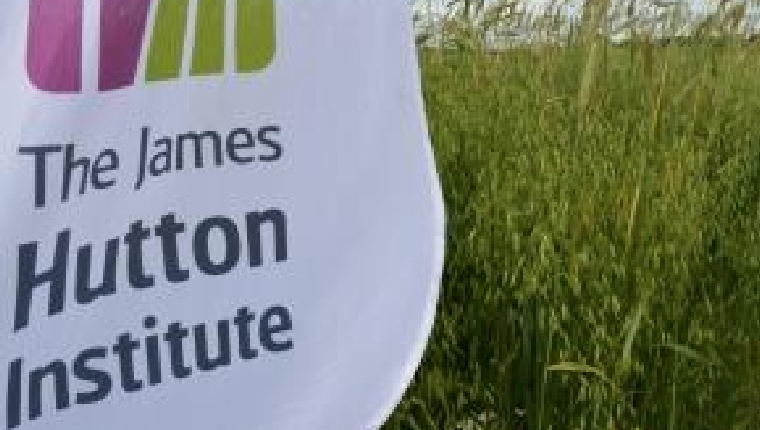
Cereals in Practice 2018
Date and Time
5th Jul 2018 | 14:45 - 18:30
Location
Saphock Farm
Oldmeldrum
AB51 0EY
Come to Saphock Farm in Aberdeenshire on Thursday 5th July for Cereals in Practice 2018, the annual showcase of variety trials and research organised by the James Hutton Institute, Scotland’s Rural College (SRUC) and the Scottish Society for Crop Research.
Aimed at farmers, agronomists, industry and scientists working with cereals, the event brings variety trials and current research together in one place providing a unique opportunity to discover and discuss the latest recommendations and developments in the cereals industry.
This year’s event will feature the following field trials and demonstrations:
- Spring barley varieties – what to look out for in 2018/2019: A look at new varieties on the AHDB Recommended List and how they fare under northern conditions.
- IMPROMALT: Project to improve winter barley malting quality.
- Alternative cropping: Demonstration of intercropping opportunities using protein and CAP greening cover crops, nitrogen-fixing crops in field and the carry-over effects from 2017 on a spring barley crop.
- Trials highlight the agronomic, environmental and economic performance of CAP greening crops as well as the use of protein crops for food and feed.
- Benefits include an increase in the yield of a following crop; reducing the amount of nitrogen fertiliser needed for the following crop; suppression of some pest, weed and disease issues.
- Environmental benefits include improved soil structure, a reduction in soil erosion and nitrogen and phosphate leaching, and an extended flowering period for pollinators and improved wildlife habitat.
- Nitrogen use efficiency: Optimal nitrogen inputs for spring barley.
- 50 years of Golden Promise: A closer look at the pedigree of heritage variety Golden Promise.
- Integrated Pest Management: IPM approaches for the management of disease in winter barley.
- Combinations of winter barley varieties can achieve both high yields and high-quality feed products (straw and grain), and reduce the fungicide inputs required.
- EPH Innovate project: EPH (epiheterodendrin) is an important quality trait for the whisky industry. This project is providing breeders with improved diagnostics to help breed future malting varieties for Scotland.
- Targeting fungicide inputs, resistance and alternatives to fungicides: Best practice in terms of fungicide options, fungicide resistance and what alternatives are available to fungicides for effective disease management.
- By choosing varieties with disease resistance there may be scope for omitting some fungicide treatments, or by choosing appropriate and effective doses of fungicides, be able to protect yield and margin over costs, and reduce the risk of fungicide resistance.
Exhibits from the James Hutton Institute, SRUC, SSCR and AHDB will be on show, offering an opportunity to discuss recent scientific developments. Topical issues will include the Hutton Centre for Sustainable Cropping, the recently-launched Plant Health Centre, the International Barley Hub initiative, as well as EU projects DIVERSify and ReMIX. The Rowett Institute, Farming and Water Scotland, SoilEssentials and SASA will also be at the event.
To find out more about this event, please click here.
Read more about the latest varieties and research on show.